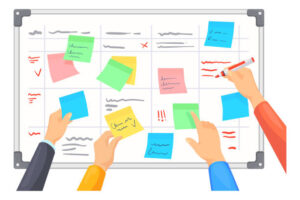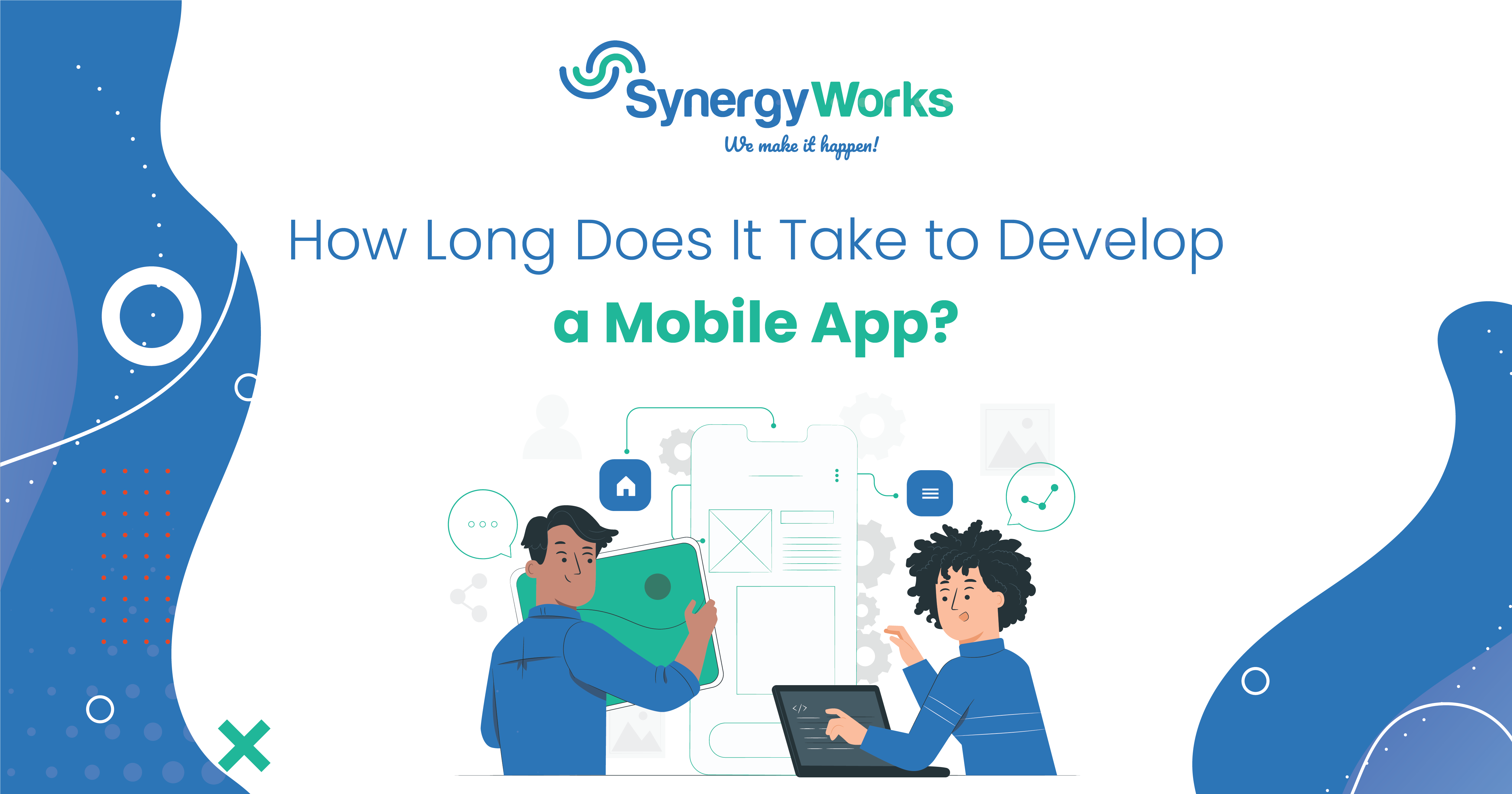One of the most frequently posed inquiries in the field of mobile app development circles around the duration it takes to create an app. It’s a process riddled with intricacy, with a plethora of factors influencing the timeline. No two projects are alike, and the time frame fluctuates significantly based on the complexity of the application.
Is it a simple application with basic functionality? Expect a 2-4 month timeline. An app of moderate complexity? Estimate between 4-6 months. If it’s a complex endeavor with many features, brace for a development period stretching 9 months or more.
In this article, we’ll delve into all the essential information regarding app development timelines. Read on to learn all about what to expect timeline-wise when working on an app development project.
Dissecting the Timeline: A Stage-by-Stage Examination of How Long Mobile App Development Takes
Navigating the journey of mobile app development isn’t a linear road map, with each fork presenting unique challenges, sudden revisions, and inevitable technical roadblocks.
However, despite the unpredictability, there are certain steps that form the essential framework of this intricate process.
Here’s a closer look at each of these stages, shedding light on their unique intricacies and the time investment they require.
Stage 1: Market Research and Ideation

In the mobile app landscape, the initial stage of market research and ideation forms the bedrock upon which the entire project rests. By scrutinizing competitors, understanding your target audience, and assessing the technical stack to incorporate, you lay the foundations of your project. Remember, detailed and rigorous research paves the way for a resilient application.
Typically, this stage, due to its depth and breadth, extends over several weeks.
Stage 2: Discovery Phase
The Discovery Phase revolves around gaining a comprehensive understanding of potential users, pinpointing project requirements, and outlining tangible business goals. This stage is crucial in shaping the overall trajectory of your project, helping to align your app development vision with market needs.
Time-wise, this stage demands anywhere from 2 to 4 weeks, allowing for a thorough exploration of your business and its digital landscape.
Stage 3: Designing and Wireframing

Once the groundwork is set, the process moves to designing and wireframing. This is where your application starts to take form visually, with the UI design, structure, and flow control being crafted. Tools such as Adobe XD are used to sketch raw designs, while comprehensive wireframes and prototypes provide a visual blueprint of the final product.
This intricate stage typically spans 1 to 3 months.
Stage 4: Actual Development

The actual development stage is the most labor-intensive and time-consuming segment of the journey. It involves implementing backend and front-end development, bringing your application to life. This is where your app goes from a blueprint to a functioning entity, requiring meticulous coding, integration, and optimization.
Given the complexity of this stage, it often extends over a period of 4 to 6 months.
Stage 5: Testing

With the development phase complete, the focus shifts to testing. This is a critical stage, with testers meticulously working to uncover and address glitches, bugs, and other potential roadblocks to the user experience.
This rigorous process can take anywhere from 3 to 5 weeks, depending on the complexity of the app.
Stage 6: Deployment
The final step in the journey is deployment. After the completion of development and testing, your app needs to navigate its way into the app stores. The Apple App Store and Google Play Store have their own guidelines and review periods.
The deployment on Apple App Store typically takes between 24 and 48 hours, while the Google Play Store review process varies from 2 to 72 hours.
4 Strategies to Expedite the App Development Process
Despite the inherent satisfaction that comes with developing an application from the ground up, it’s common to yearn for faster progress in certain phases.
Here are four strategies that can help fast-track the app development process.
1. Use Low-Fidelity Wireframes
Integrating low-fidelity wireframes into the initial stages of the app development process can significantly reduce development time. These rudimentary sketches provide a high-level overview of the app’s layout and functionality, serving as a crucial blueprint for developers.
Though simplistic in nature, low-fidelity wireframes foster quicker iterations, helping to clarify concepts and design decisions early in the process.
By tackling potential issues at this preliminary stage, developers can stave off time-consuming revisions later, paving the way for a more streamlined development journey.
2. Start With an MVP

Building an application is often an ambitious endeavor, but one can expedite the process by initiating the journey with a Minimum Viable Product (MVP). This approach entails developing an app with only the most essential features, enabling a quicker launch.
With an MVP, developers can gather valuable user feedback early in the process, allowing them to refine and iterate based on actual user data. As a result, they can avoid investing time and resources into features that may not resonate with users, ultimately accelerating the development process.
3. Plan a Design Review Before Sprints
Incorporating a design review phase before initiating development sprints can be a game-changer in the quest for speed. This phase allows for a thorough examination of the design, encouraging dialogue between designers and developers. It can help preemptively identify and rectify design errors, ambiguities, or misalignments with the project goals.
By addressing these issues upfront, developers can reduce the risk of encountering speed bumps during the coding sprints, ensuring smoother and faster progression.
4. Outsourcing Development Work

Finally, outsourcing development tasks to a specialized offshore company like SynergyWorks can markedly hasten the development process.
By capitalizing on their broad expertise, round-the-clock availability, and economies of scale, you can rapidly advance your app’s development. Moreover, by delegating these tasks, your internal team can focus on core competencies and strategic objectives, further enhancing productivity.
Accelerate Your App Development Journey with SynergyWorks
Navigating the labyrinth of app development timelines can be a daunting endeavor. However, with the right approach and strategic choices, it’s entirely possible to optimize and expedite this process.
That’s where SynergyWorks steps in. We’re committed to bringing your app ideas to fruition while optimizing the development timeline. Our expertise in implementing effective strategies like low-fidelity wireframes, MVP development, pre-sprint design reviews, and more, ensures a seamless and speedy development process. We aim to turn your app vision into a reality without unnecessary delays.
Let’s set your app idea in motion. Get in touch with us today for a custom quote.





